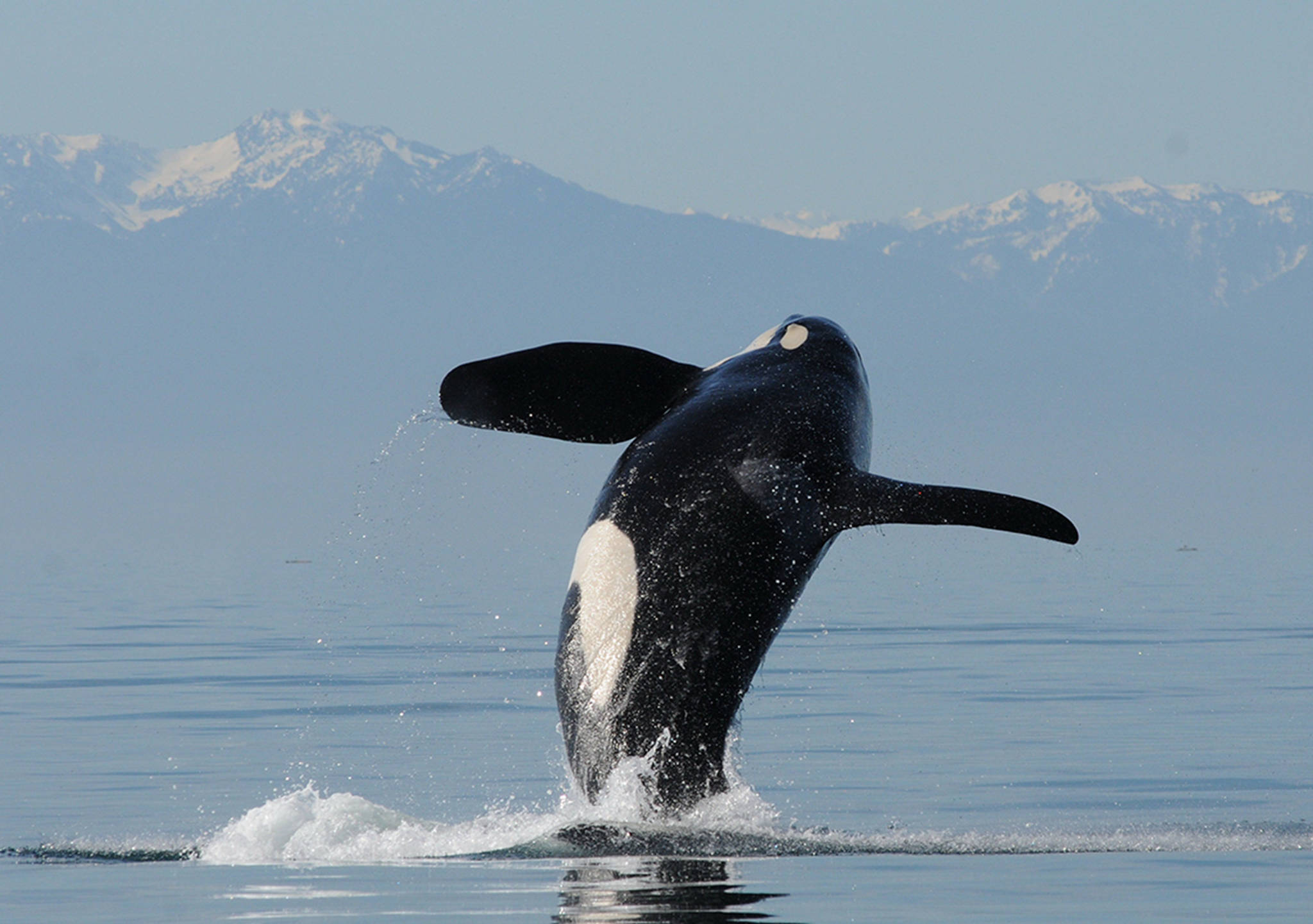After 15 years as a whale watch tour operator, Captain Alan “Hobbes” Buchanan’s passion for whales has led him to create a new organization titled Orca Protection and Rescue. The organization is dedicated to protecting the Southern resident killer whales and wildlife of the Salish Sea. Orca Protection and Rescue will focus on improving whale watch regulations and enforcement, as well as the removal of marine debris and plastics.
“I’m done with too many whale watch and private boats around the whales at a time, not enough enforcement, some bad tour operators due to poor training, and ignorance around these majestic animals,” said Buchanan.
In 2002, approximately 15 to20 whale-watch vessels engaged with the 90-plus whales that made up the Southern Resident Killer Whale population. Today, more than 97 whale-watch vessels engage with the now endangered Southern Resident population of 76 whales, departing from 19 different ports around Washington. These vessels do not account for the private boats, ferries, commercial shipping, research boats, or enforcement vessels also operating daily. Orca Protection and Rescue is concerned with the growing number of whale watch companies that operate with no required permits or official training.
“… That’s well over 120 boats! Whales change their behavior and stop feeding when lots of boats and noise are around them. No wonder they are starving to death. And as of now, there are still no permits or training required by local, federal or state agencies to operate a whale watch company. And, the number of boats is still growing,” Buchanan explained.
Orca Protection and Rescue is dedicated to restricting the number of whale watch and private boats observing whales and wildlife at any one time.
As a former member of the Pacific Whale Watch Association, Orca Protection and Rescue is looking to partner with the association to regulate whale watching in the Salish Sea. The PWWA represents 32 companies that take out approximately 480,000 passengers a year. Whale watching in Puget Sound is a $50 million-a-year industry.
Orca Protection and Rescue has another area of concern: plastics and other marine debris. The organization plans to set up a hotline so people can report ghost fishing gear, marine debris and plastics for crew and volunteers of the organization to go out and retrieve. Buchanan has met with many regional agencies over the last couple of months looking for partners in such an effort.
“We have already started cleaning up our beaches. A big thank you goes to all of the volunteers who have been doing this!”
Orca Protection and Rescue is applying for grants and relies on donations from the public. You can make a donation at www.orcaprotection.org, through its Facebook page “Orca Protection and Rescue,” or email captBuchanan@orcaprotection.org for more information.



